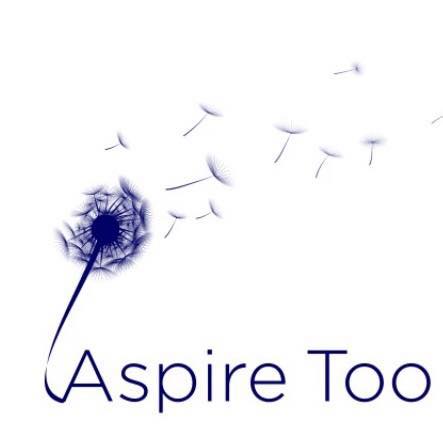High-conflict divorces can be emotionally taxing, particularly when children are involved. As parents, it’s crucial to work collaboratively with your child’s counsellor to ensure their well-being during this challenging time. This blog post offers practical advice for parents on how to engage with their child’s counsellor professionally and effectively while navigating a stressful and often emotional situation.
Establish Clear Boundaries
Having clear boundaries established with the counsellor from the outset helps create a productive and respectful relationship with your child’s counsellor and your spouse. Your child’s counsellor will introduce appropriate boundaries for both parents regarding the child’s counselling.
Communication Boundaries
From the initial intake session, adhere to the counsellor’s communication guidelines. Respect the specified methods and times for contact, and remember that sessions are focused on your child’s needs, not parental disputes. Avoid using the counsellor as a go-between for you and your ex-partner.
Confidentiality and Fees
Understand the confidentiality agreements in place. While the counsellor will maintain privacy, certain information might need to be shared with other professionals for your child’s best interest. Confidentiality and it’s limits will be discussed at the outset so it is clear what information will and will not be shared, and with whom. Also, ensure you are clear on the fee structure to prevent misunderstandings later on.
Defining the Counsellor’s Role
Acknowledge that the counsellor’s primary focus is your child’s well-being, not mediating between you and your ex-partner. They will not take sides but will work solely towards what is best for your child.
Understand High-Conflict Personalities
Recognizing high-conflict personalities can help you manage your interactions more effectively.
Characteristics of High-Conflict Personalities
High-conflict individuals often display extreme behaviors and rigid thinking patterns. Being aware of these traits allows you to respond with empathy and detachment, rather than getting drawn into emotional turbulence.
Managing Hostile Behaviour
It’s important not to take hostile behavior personally. Such behaviour often stems from the high-conflict mindset and is not a reflection of your actions. Maintain your composure and focus on your child’s needs.
Maintain Detailed Records
In high-conflict divorce cases, keeping thorough records can be beneficial.
Effective Record Keeping
Maintain an organized approach to record keeping. Document all interactions related to your child’s counselling, including details about their behavior and any incidents involving the other parent. This can be helpful if records are ever needed for legal purposes.
Establish a Support System
Dealing with high-conflict divorces can be emotionally draining. Prioritize your self-care by building a strong support system.
Personal Self-Care
Engage in activities that support your mental and physical well-being, such as personal therapy and regular exercise. This helps you maintain the emotional resilience needed for handling stressful situations.
Professional Support
Consult with professionals who have experience with high-conflict divorce cases. Their insights can provide valuable perspectives and strategies for managing complex situations.
Set Appropriate Boundaries with the Counsellor
Maintaining appropriate boundaries with your child’s counsellor is crucial in high-conflict divorce scenarios.
Communication Limits
Keep communication with the counsellor strictly about your child’s treatment logistics. Refrain from getting drawn into conflicts or using the counsellor as an intermediary. This helps in maintaining the counsellor’s neutrality and allows them to focus on your child’s therapy.
Referring to Divorce Professionals
For issues outside the counsellor’s role, refer to appropriate professionals such as divorce lawyers or mediators. This ensures that each aspect of the divorce is handled by the right expert, relieving the counsellor from tasks beyond their expertise.
Focus on the Child’s Needs
In high-conflict divorces, children often feel caught in the crossfire. Your primary focus should always be on your child’s needs and well-being and not getting even or punishing your ex spouse.
Therapeutic Interventions
Support the counsellor’s therapeutic interventions that provide your child with a safe space to process the divorce. Techniques like play therapy or art therapy can be effective in helping children express their feelings and cope with their experiences.
Psychoeducation
Provide your child with age-appropriate information about divorce, with guidance from the counsellor. This helps them understand the situation and reduces anxiety caused by uncertainty and misconceptions.
Advocacy for the Child
Support your child’s right to maintain positive relationships with both parents, whenever possible. This is important for the health and long term consequences that can bring trauma to your child that can have long term consequences. This promotes their emotional stability and helps in fostering a balanced view of both parents.
To summarize:
Navigating a high-conflict divorce requires a cooperative and professional approach with your child’s counsellor. By establishing clear boundaries, understanding high-conflict personalities, maintaining detailed records, building a support system, setting appropriate boundaries with the counsellor, and focusing on your child’s needs, you can help ensure your child’s well-being during this turbulent time. Remember, your role is to support the counsellor in offering a stable, neutral ground where your child can safely explore and understand their emotions amidst the turmoil of a high-conflict divorce. Your child’s counsellor will maintain the best interest of the child in all circumstances, and ideally both parents will as well.

